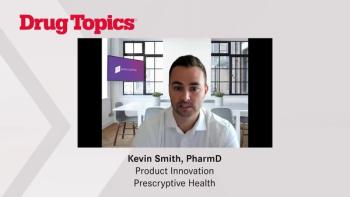
Staying The Course
New gee-whiz technologies are improving patients' compliance with their drug regimens
New gee-whiz technologies are improving patients' compliance with their drug regimens.
Patients who don't take their medications or who take them improperly are a plague on healthcare systems around the world. The World Health Organization estimates that adherence to long-term therapy for chronic conditions averages about 50% in industrialized countries, and it's even worse in developing countries. Studies have shown that when prescriptions are written, one-third of patients take the medications as prescribed, one-third take some of the medicine, and one-third don't even bother to fill the prescription.
High tech
Since 65% of adults in a recent Harris Interactive poll said they forgot to take their medications, developing devices that jog patients' memories has been an obvious point of attack on noncompliance. Recognizing the limitations of the little plastic pillbox and human nature, some enterprising folks have built a better compliance mousetrap. Drug Topics decided to take a look at some of the ones that have literally added bells and whistles to alert patients when it's time to take their next dose of medicine.
One kissing cousin of the plastic pillbox is MedivoxRx Technologies' Rex, a talking pill vial that helps blind, visually impaired, and illiterate patients take their meds. Rex and his chatty competitors, including Aloud, Beep 'N Tell, and Talking Rx, use microchips that allow the patient, caregiver, or pharmacist to record a message about the drug and how to take it.
Higher up the electronic evolutionary chain is OnTimeRx, a Web-based reminder system for the Palm Pilot and Pocket PC crowds that was developed by Susan Torrico. The Florida pharmacist is now busy preparing to launch OnCellRx for cell phones and pagers.
When MedPrompt entered the patient compliance field 16 years ago, its "better mousetrap" was a cardboard slide designed to be stuck on the refrigerator, said VP Mike Hamilton. Now the Texas-based firm offers subscribers a reminder service through a programmed alphanumeric pager or other wireless device. In addition to serving consumers directly, the firm partners with pharmacies willing to offer the pager service.
"Our clients are organizations and independent pharmacies," said Hamilton. "MedPrompt gives them a good tool to differentiate themselves from the chains. The consumer price is $39.95, but pharmacies get a discounted price. We customize our programs to the pharmacy's focus."
Can you hear me now?
If Alexander Graham Bell knew that his invention would morph into the cell phone, he might have decided to become a plumber instead of an inventor. But since the devices have become a staple of American life, entrepreneurs are trying to cash in by turning them into a compliance tool.
Newsletter
Pharmacy practice is always changing. Stay ahead of the curve with the Drug Topics newsletter and get the latest drug information, industry trends, and patient care tips.























